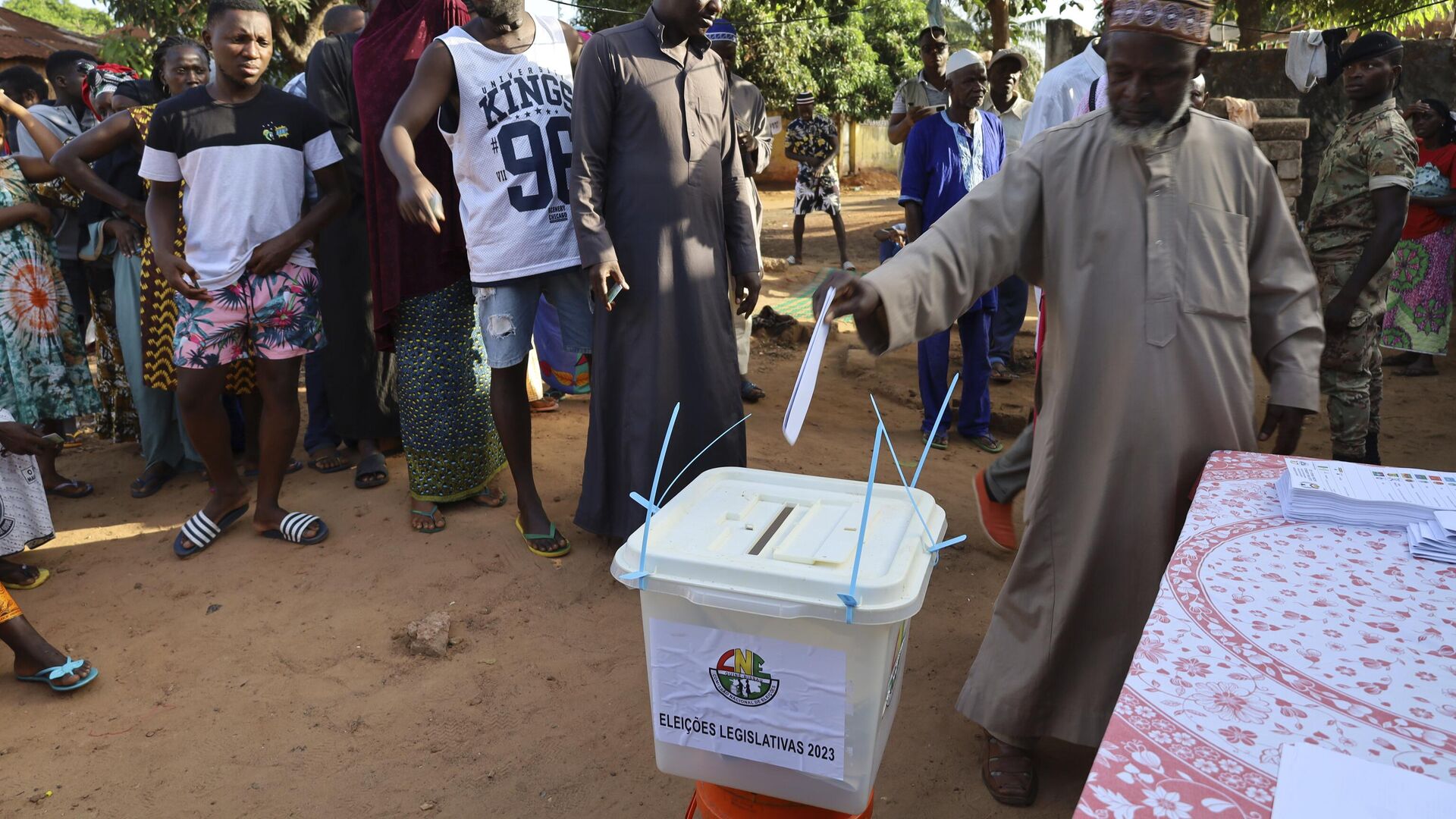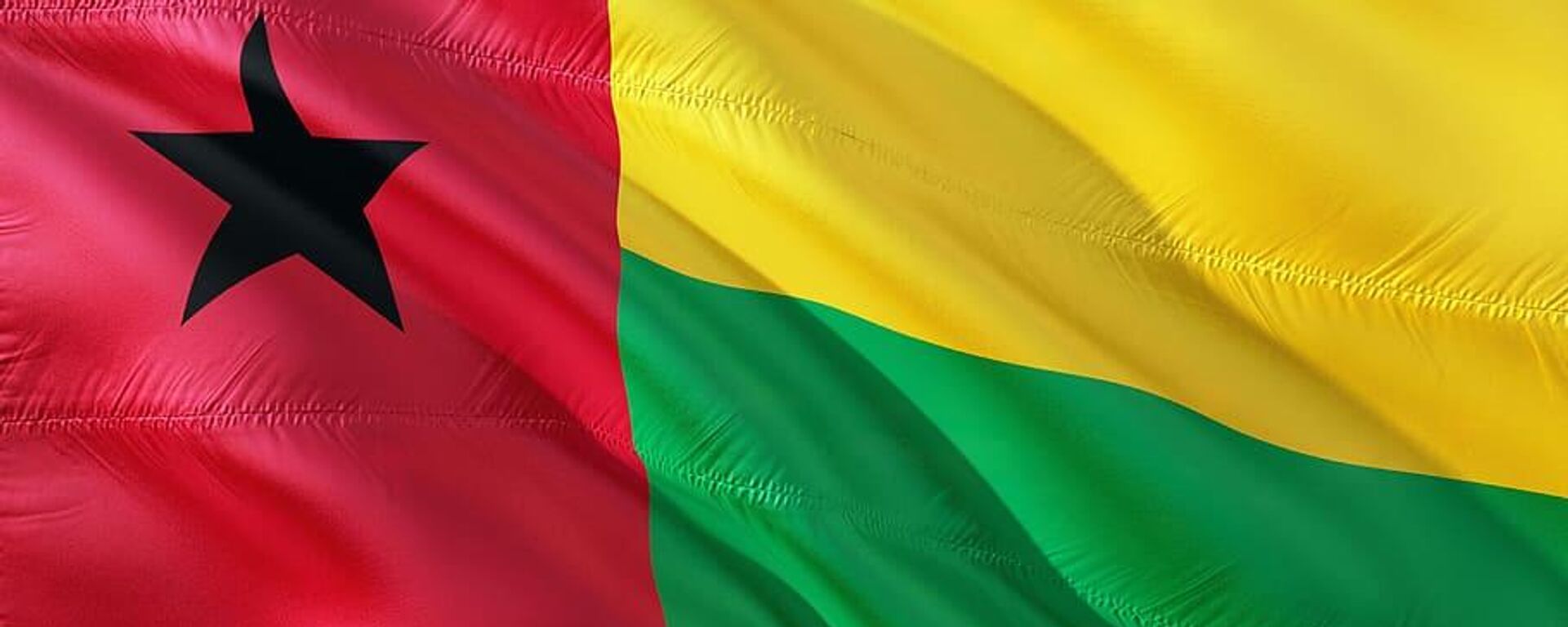https://en.sputniknews.africa/20230609/what-is-the-current-composition-of-newly-elected-parliament-in-guinea-bissau-1059810317.html
What is the Current Composition of Newly Elected Parliament in Guinea-Bissau?
What is the Current Composition of Newly Elected Parliament in Guinea-Bissau?
Sputnik Africa
Last week, Guinea-Bissau held a parliamentary election, more than a year after the western African nation's president, Umaro Sissoco Embalo, dissolved the... 09.06.2023, Sputnik Africa
2023-06-09T12:54+0200
2023-06-09T12:54+0200
2023-08-03T10:47+0200
west africa
guinea-bissau
parliament
elections
polls
legislation
features
politics
https://cdn1.img.sputniknews.africa/img/07e7/06/09/1059810823_0:320:3072:2048_1920x0_80_0_0_6027322532af5cf34e5fabcba0cb441b.jpg
A coalition of opposition parties in Guinea-Bissau has secured a majority of seats in the country's parliament, the National People’s Assembly, in the legislative elections held on June 4, the national electoral commission has announced. The remaining seats were scattered among three other parties. The Party for Social Renewal (PRS) won 12 seats, the Workers’ Party six seats and the Assembly of the People United one seat.Over 20 political parties and coalitions vied for the parliament seats in a highly anticipated elections to fill Guinea-Bissau's national legislature after a 13-month absence. A hundred members were elected directly in multi-seat constituencies by closed-list proportional representation vote, while the remaining two from two single-seat overseas constituencies.Under the nation's current political system, the majority party appoints government, including the prime minister. At the same time, the president has the power to dismiss it under certain circumstances.In the past, this has led to political deadlocks, insecurity and infighting. The nation has repeatedly faced political instability, with military coups attempts to topple the government and contested election results.Guinea-Bissau's President Embalo acknowledged the setback of his party in an address to the nation following an announcement of the election results, and congratulated the winning coalition.Embalo, a former army general, took office on February 28, 2020, after he was declared the winner of a December 2019 runoff election. In February 2022, he escaped a coup attempt when armed assailants attacked the government palace.On May 16, 2022, the president dissolved the parliament and postponed the parliamentary election scheduled for the following December. He accused lawmakers of corruption, dubbing the legislature as a "space for guerrilla politics and plotting," while pointing at "unresolvable" differences between the parliament and other government branches.
https://en.sputniknews.africa/20230604/guinea-bissau-to-vote-in-legislative-polls-on-sunday-1059698700.html
west africa
guinea-bissau
Sputnik Africa
feedback@sputniknews.com
+74956456601
MIA „Rossiya Segodnya“
2023
News
en_EN
Sputnik Africa
feedback@sputniknews.com
+74956456601
MIA „Rossiya Segodnya“
Sputnik Africa
feedback@sputniknews.com
+74956456601
MIA „Rossiya Segodnya“
west africa, guinea-bissau, parliament, elections, polls, legislation, politics
west africa, guinea-bissau, parliament, elections, polls, legislation, politics
What is the Current Composition of Newly Elected Parliament in Guinea-Bissau?
12:54 09.06.2023 (Updated: 10:47 03.08.2023) Last week, Guinea-Bissau held a parliamentary election, more than a year after the western African nation's president, Umaro Sissoco Embalo, dissolved the legislature on accusations of corruption. Nearly 1 million voters were registered to elect more than 100 lawmakers.
A coalition of opposition parties in Guinea-Bissau has secured a majority of seats in the country's parliament, the National People’s Assembly, in the legislative
elections held on June 4, the national electoral commission has announced.
According to the commission, a coalition of five opposition parties led by the African Party for the Independence of Guinea and Cape Verde (PAIGC) won 54 of the 102 seats. The incumbent president Embalo's Madem-G15 party, officially known as the Movement for Democratic Alternation, secured 29 seats.
The remaining seats were scattered among three other parties. The Party for Social Renewal (PRS) won 12 seats, the Workers’ Party six seats and the Assembly of the People United one seat.
Over 20 political parties and coalitions vied for the parliament seats in a highly anticipated elections to fill Guinea-Bissau's national legislature after a 13-month absence. A hundred members were elected directly in multi-seat constituencies by closed-list proportional representation vote, while the remaining two from two single-seat overseas constituencies.
Under the nation's current political system, the majority party appoints government, including the prime minister. At the same time, the president has the power to dismiss it under certain circumstances.
In the past, this has led to political deadlocks, insecurity and infighting. The nation has repeatedly faced
political instability, with military coups attempts to topple the government and contested election results.
However, according to local media, last week's vote was held in a peaceful environment, despite some logistical problems. About 200 international observers stated that they had not detected any major incident, describing the polls as "free, transparent and calm."
Guinea-Bissau's President Embalo acknowledged the setback of his party in an address to the nation following an announcement of the election results, and congratulated the winning coalition.
"My party has failed. The people have punished it," he is quoted as saying by the media.
Embalo, a former army general, took office on February 28, 2020, after he was declared the winner of a December 2019 runoff election. In February 2022, he escaped a coup attempt when armed assailants attacked the government palace.
On May 16, 2022, the president dissolved the parliament and postponed the parliamentary election scheduled for the following December. He accused lawmakers of corruption, dubbing the legislature as a "space for guerrilla politics and plotting," while pointing at "unresolvable" differences between the parliament and other government branches.


